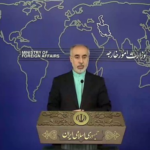The Muslim World League’s secretary general, Mohammad bin Abdulkarim Al-Issa, said the top Islamic scholars and universities of fiqh (jurisprudence) oppose the decision of the current Afghan government to ban women from working and getting an education in Afghanistan.
In an interview with an Arab media, Al-Issa noted that some women from Islamic countries work at the UN and are engaged in training in all academic fields.
“Muslim women have played key roles throughout Islam’s history. There are women from Islamic countries who work at the UN, and they teach at all levels of education. Fiqh (Jurisprudence) universities and senior scholars of the Islamic world and different sects are against this decision of the Taliban,” he said.
However, the Islamic Emirate, in response to the secretary general of the Muslim World League, said that its decisions are made in accordance with Islamic Sharia.
“The Islamic Emirate of Afghanistan is trying its best to make progress in this area, and what is possible and acceptable in our society, we will definitely do our best to achieve it,” said Zabihullah Mujahid, spokesman of the Islamic Emirate.
Meanwhile, participants at the G7 Foreign Ministers’ Meeting in Karuizawa, Nagano, Japan, released a statement condemning recent actions taken by the Afghan government against women.
According to the statement, Hayashi Yoshimasa, Minister for Foreign Affairs of Japan, also explained Japan’s analysis of the situation on the ground–as one of the few major donor countries with a presence in Kabul–and emphasized the need to engage persistently and directly with the Islamic Emirate, while continuing to provide assistance to the people of Afghanistan in cooperation with the international community.
“Regarding Afghanistan, Minister Hayashi expressed serious concern regarding the worsening human rights and humanitarian situation in Afghanistan, and, in particular, strongly condemned the recent decisions by the Taliban that suppress human rights, including increased restrictions on women’s rights,” the statement reads.
The UN deputy chief Amina Mohammed in an interview with a foreign media outlet said that engagement with the current Afghan government should continue given the current situation.
“My experience is that we have to continue to engage, we need the international community to come together, as I said, with the neighborhood and put pressure, Muslim communities and countries, the OIC, have to put that pressure,” Amina Mohammed said.
It has been nearly two weeks that the UN’s female Afghan employees have been banned from working in Nangarhar province, and this decision of the Afghan government has sparked many reactions.













